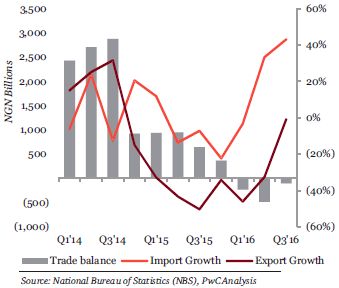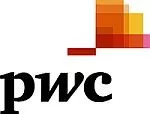Summary
The Federal Government of Nigeria recently approved the 2016 Fiscal Policy Measures which allow the implementation of the Supplementary Protection Measures and the ECOWAS Common External Tariff (CET) 2015-2019. A key feature of this implementation plan is a reduction of import duty rates on specific items on the national list, aimed at promoting the development of sectors deemed critical to the economy. Notable amongst these are: (i) 0% for machineries and equipment for priority sectors (Agriculture, Cement, Power, Hospitality, Iron and Steel, Solid minerals, Textile and Aviation); (ii) 5% (previous: 10%) for Milk and Cream, and other semi-processed animal by-products; and 5% (previous: 10%) for Tomato concentrate. In total, 89 items were affected, with tariff reductions ranging from 5%-15%.
Overall, we expect this development to be supportive of growth in the medium term, assuming the government takes genuine measures towards economic diversification. That said, we believe the impact will be offset by more fundamental challenges such as: constraints to doing business, low labour productivity, corruption, and foreign exchange unavailability.
Trade deficit set to widen further
The reduction in tariffs is expected to stimulate aggregate demand through imports, as our analysis suggests that the listed items could account for 29%-35%* of annual imports. Although imports-to-GDP is only marginal at 8.6%*, the policy will aim to leverage strong linkages to consumption and investments to stimulate growth. Whilst this is plausible, we suspect challenges around foreign exchange could subdue the intended impact even as sources of dollar inflows remain stretched. Nonetheless, we see the room for import growth as tilted to the upside, consistent with the trend observed since Q1 2016 as demand stabilises following a weak 2015. Thus, we expect Nigeria's trade deficit to widen further in 2017 from around NGN1 trillion recorded in 2016, if fiscal measures are not taken to bolster exports significantly.
Trade Balance, Export and Import Growth (2014-2016)

Any conflict with diversification stance?
We believe the Federal Government's diversification agenda would be largely unaffected in the medium to long term. A zero tariff on machinery and equipment should stimulate growth in the sectors with strong linkages to the economy as fixed capital formation increases over time. Nonetheless, it is important to note that this development may cause distortions in a few industries. The tariff reduction on milk products may hamper utilisation of domestic raw material along the value chain and thus disincentivize increased domestic production. Also, the Chemical and Allied products, and Electrical and Electronic industries may be prone to over-dependency on importation of intermediate goods in the medium term, and this may stifle backward integration in the industry.
In the long run, we reiterate that factors such as improving the ease of doing business, raising human capital productivity, and addressing other structural issues are fundamental to achieving a sustainable and inclusive growth in Nigeria. In our view, a deficiency in one or more of these levers would keep growth trajectory below potential and limit economic development.
*PwC estimate as at 2016
The content of this article is intended to provide a general guide to the subject matter. Specialist advice should be sought about your specific circumstances.


